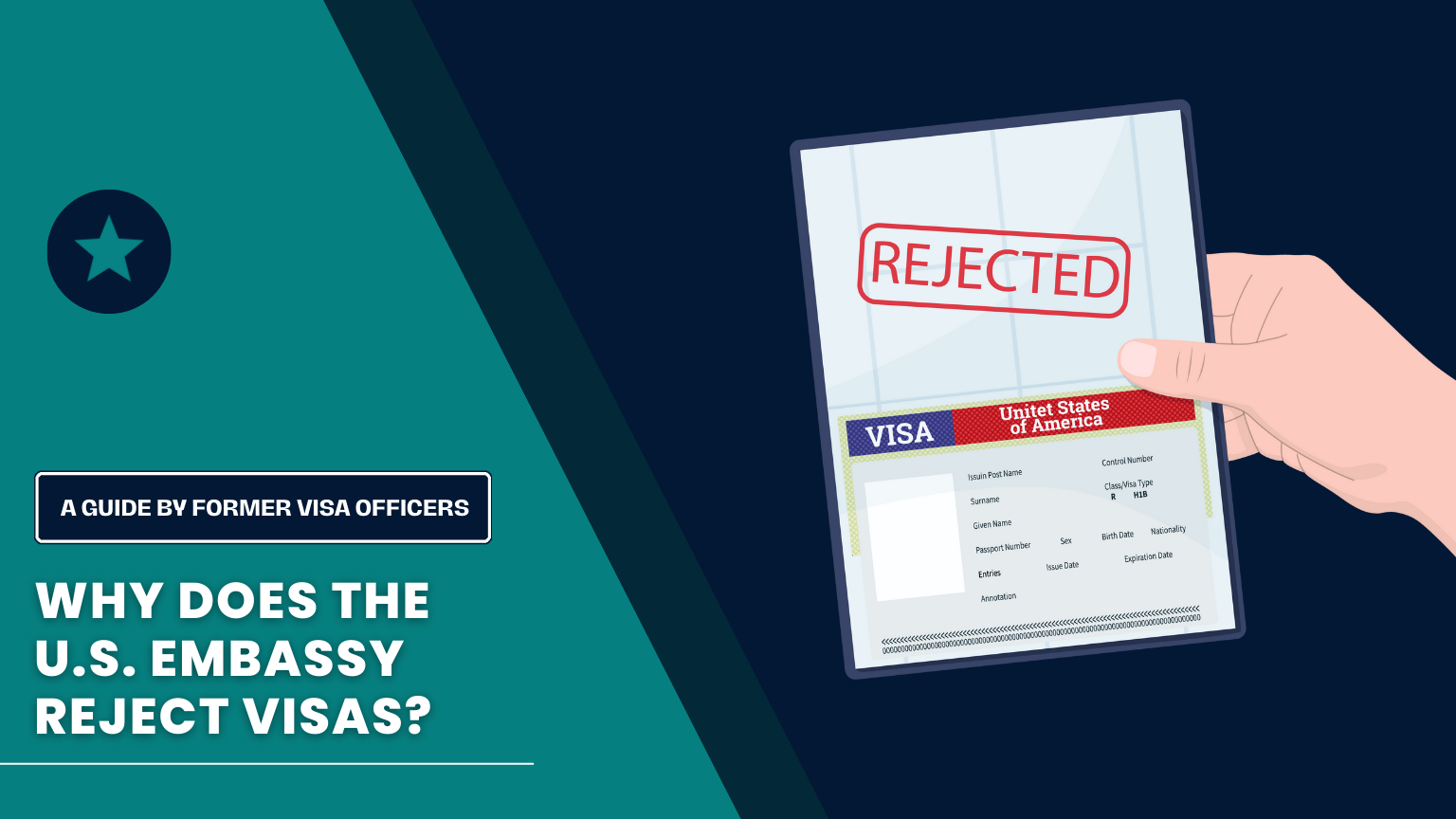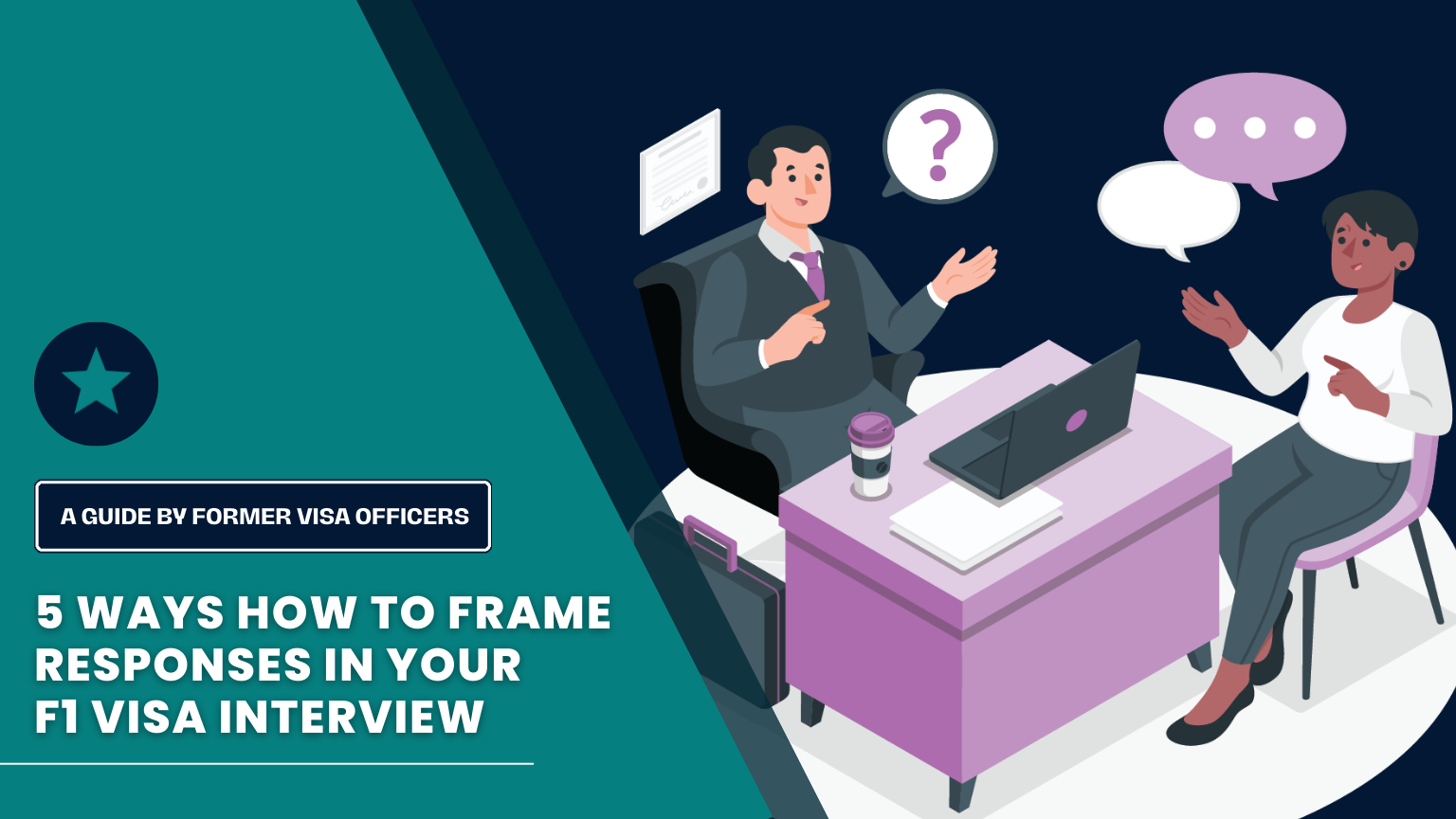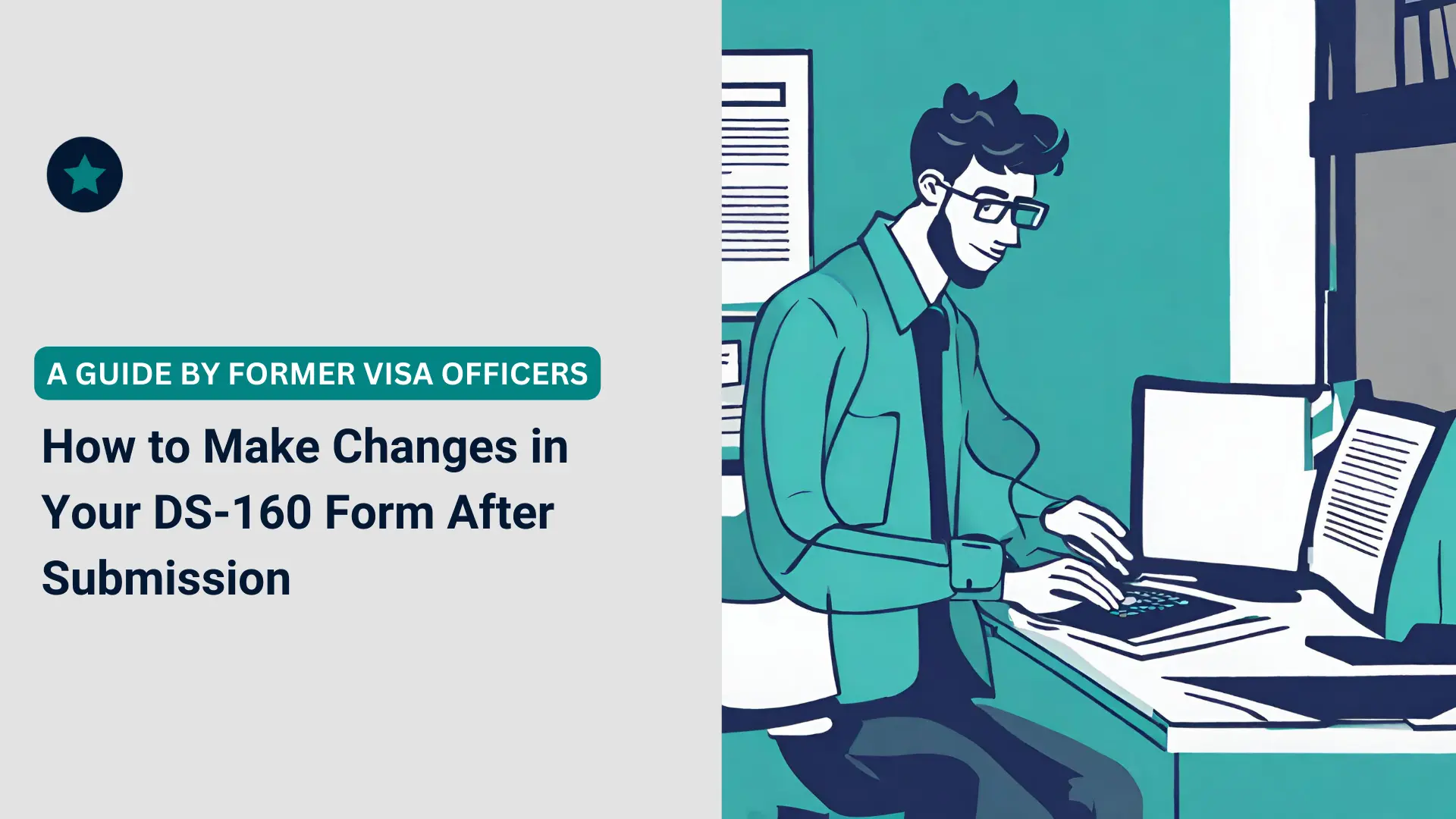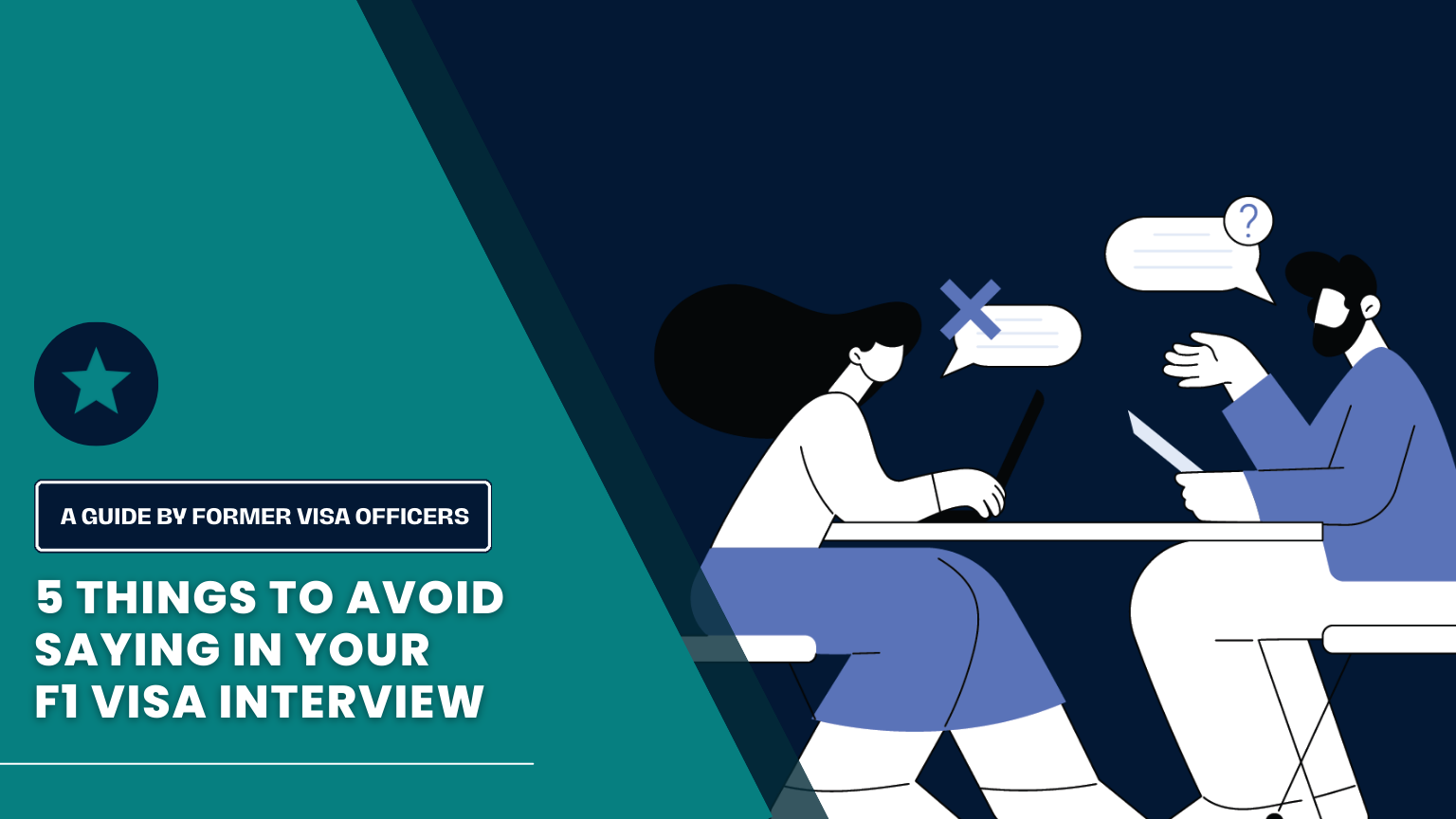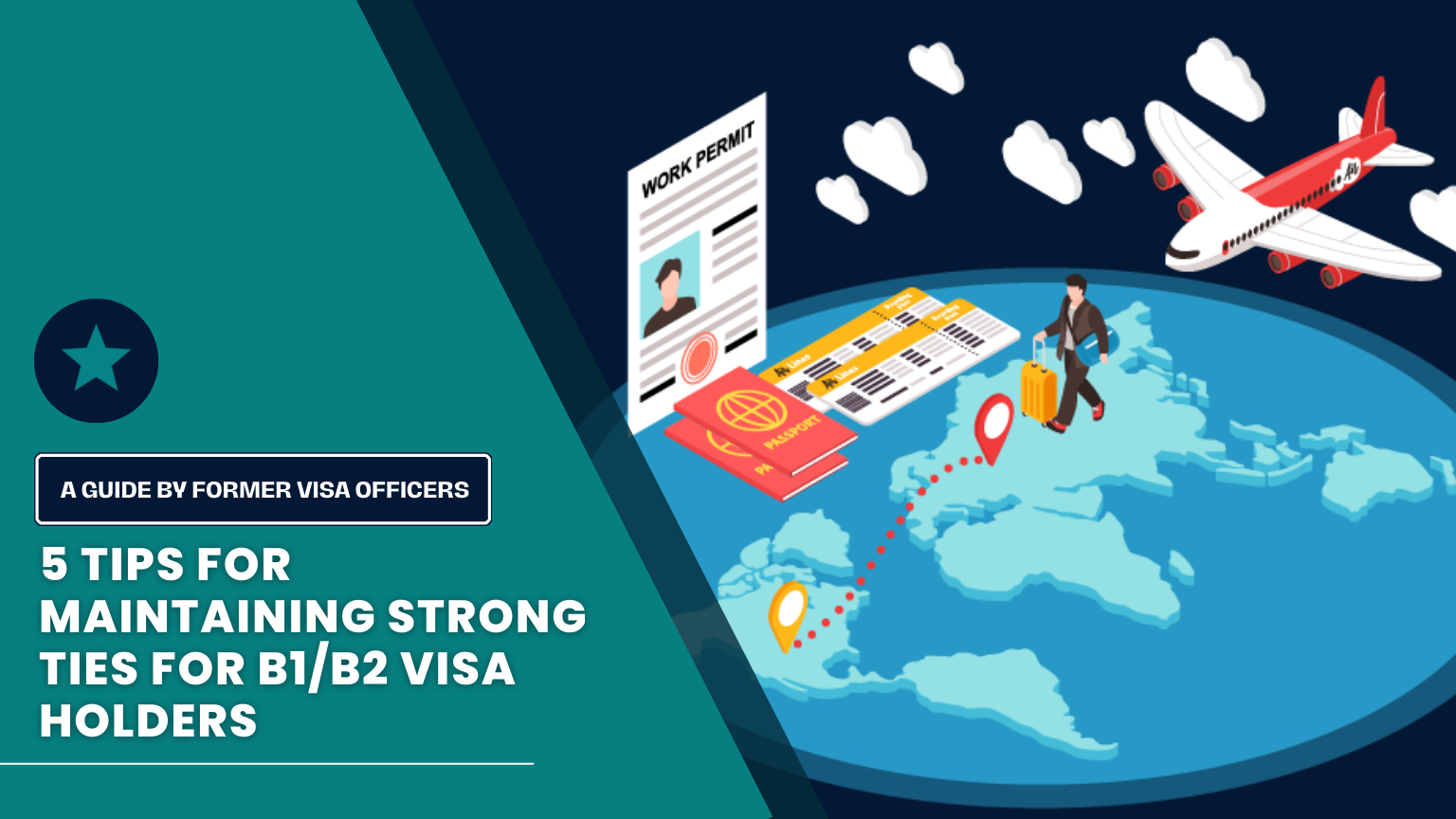Your visa plays a critical role in your plans to travel to any country. Without a valid visa, you will not be allowed to enter the U.S., which applies to most other countries. Hence, if you are serious about landing on U.S. soil, you must take the visa application process seriously and prepare well for the crucial interview session.
You may be aware of why your visa application may not be approved. If not, a visa consultant will list the reasons while explaining the process, which starts with filling out the visa application form and submitting it to the authorities. However, most people make mistakes during the process, leading to visa denial.
Here are some common reasons why your visa can be denied:
Table of Contents
ToggleCommitting Mistakes in your DS-160 Form
You must be careful with your first step in the B-1/B-2 visa process – filling out the DS-160 Form (Nonimmigrant Visa Application online). You must answer all questions truthfully (to the best of your knowledge) and correctly, or else your request may be denied due to incomplete information or misrepresentation.
Applying from a Different Country
Applying from a third country can lead to higher denial rates, especially if you were recently refused. It is better to apply from your home country if possible since the chances of success are better. However, if circumstances force you to apply from a third country, you may want to discuss it with your visa consultant before proceeding.
Not Providing a Clear Travel Itinerary
Your visa application may not be approved if you do not provide a clear and detailed itinerary for your trip to the United States. The consular officers must easily understand your purpose of traveling to the U.S., where you plan to stay during the trip, and for how long. To avoid denial, plan your itinerary and present it to the authorities.
Inadequate Finances
One of the significant reasons for f1 visa rejection, among others, is not having enough money to support yourself during your stay in the U.S. The authorities want to make sure that you have access to enough funds to cover your tuition and living expenses, besides to-and-fro airfare and other costs incurred during travel. It is advisable to have your supporting documents, including payment receipts, proof of assets, etc., to avoid rejection.
History of Visa Denial
If you have been denied a U.S. visa at any time in the past, it reduces the chances of getting a quick approval. Once you receive notice of a denial, you can always seek clarification and learn the reason for the denial from the concerned consular officer. It helps you prepare better for the next application. More than two denials make the likelihood of getting a visa request approved very bleak. It is better to double-check everything the first time.
Not preparing well for the Visa Interview
Attending the visa interview at the U.S. Embassy or consulate is the last step in the process, and it can be daunting for most applicants. You must be on time for the interview, and it is safer to be a few minutes early. Don’t misrepresent yourself during the interview, and make sure that you prepare yourself to answer the questions. If unsure, talk to a visa consultant who can conduct a mock interview and help you prepare yourself. At UDETI, we are former consular officers, so we understand the process. Ensure any visa consultant you work with has an ethical track record of guiding the applicant and relevant experience. Never pay for fake documents to take such advice.
Conclusion
In conclusion, applicants must be well-prepared to answer the consular officer’s questions. Take time to fill out the forms and ensure there are no mistakes. Misrepresentation results in permanent denial and must be avoided at all costs. Also, ensure that all documents are in order.
(This blog post was written by Yvette Bansal, a former consular officer, and Ramesh Vittal Rao, a Senior Content Writer.)
This blog does not endorse or advocate for any illegal activities. All content presented here is intended for educational purposes only. The viewpoints expressed do not constitute legal advice and are solely based on the writer’s opinions and experiences. Please use the information provided responsibly. Any advice given is of a general nature and should be applied to your specific circumstances with caution and consideration.
Yvette Bansal is a former U.S. visa officer (U.S. Diplomat). She has served at Embassy New Delhi and Consulate General Mumbai and has adjudicated over forty thousand visas. She met and married her husband in India and is currently happily settled in Chicago, United States.

